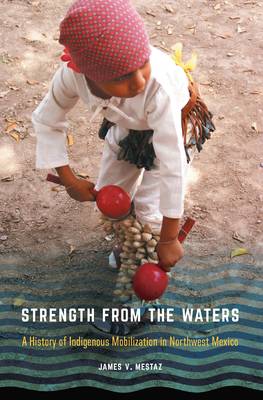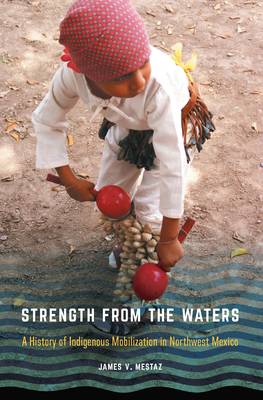
- Afhalen na 1 uur in een winkel met voorraad
- Gratis thuislevering in België vanaf € 30
- Ruim aanbod met 7 miljoen producten
- Afhalen na 1 uur in een winkel met voorraad
- Gratis thuislevering in België vanaf € 30
- Ruim aanbod met 7 miljoen producten
Zoeken
€ 167,95
+ 335 punten
Uitvoering
Omschrijving
Strength from the Waters is an environmental and social history that frames economic development, environmental concerns, and Indigenous mobilization within the context of a timeless issue: access to water. Between 1927 and 1970 the Mayo people--an Indigenous group in northwestern Mexico--confronted changing access to the largest freshwater source in the region, the Fuerte River. In Strength from the Waters James V. Mestaz demonstrates how the Mayo people used newly available opportunities such as irrigation laws, land reform, and cooperatives to maintain their connection to their river system and protect their Indigenous identity. By using irrigation technologies to increase crop production and protect lands from outsiders trying to claim it as fallow, the Mayo of northern Sinaloa simultaneously preserved their identity by continuing to conduct traditional religious rituals that paid homage to the Fuerte River. This shift in approach to both new technologies and natural resources promoted their physical and cultural survival and ensured a reciprocal connection to the Fuerte River, which bound them together as Mayo. Mestaz examines this changing link between hydraulic technology and Mayo tradition to reconsider the importance of water in relation to the state's control of the river and the ways the natural landscape transformed relations between individuals and the state, altering the social, political, ecological, and ethnic dynamics within several Indigenous villages. Strength from the Waters significantly contributes to contemporary Mexicanist scholarship by using an environmental and ethnohistorical approach to water access, Indigenous identity, and natural resource management to interrogate Mexican modernity in the twentieth century.
Specificaties
Betrokkenen
- Auteur(s):
- Uitgeverij:
Inhoud
- Aantal bladzijden:
- 316
- Taal:
- Engels
- Reeks:
Eigenschappen
- Productcode (EAN):
- 9781496228826
- Verschijningsdatum:
- 1/10/2022
- Uitvoering:
- Hardcover
- Formaat:
- Genaaid
- Afmetingen:
- 152 mm x 229 mm
- Gewicht:
- 635 g

Alleen bij Standaard Boekhandel
+ 335 punten op je klantenkaart van Standaard Boekhandel
Beoordelingen
We publiceren alleen reviews die voldoen aan de voorwaarden voor reviews. Bekijk onze voorwaarden voor reviews.











